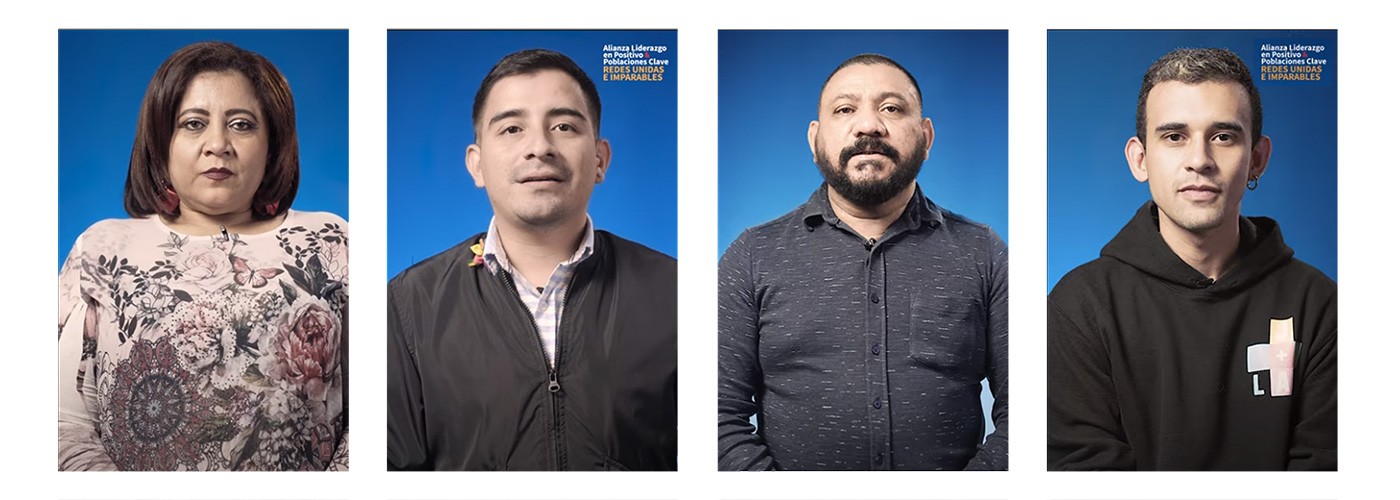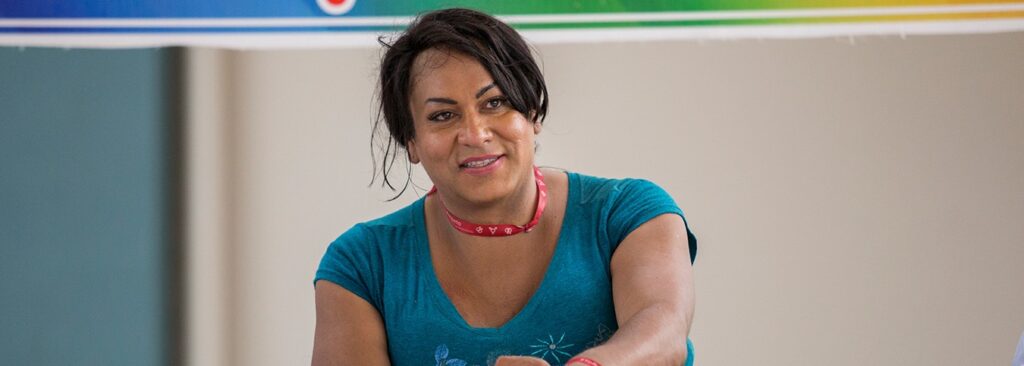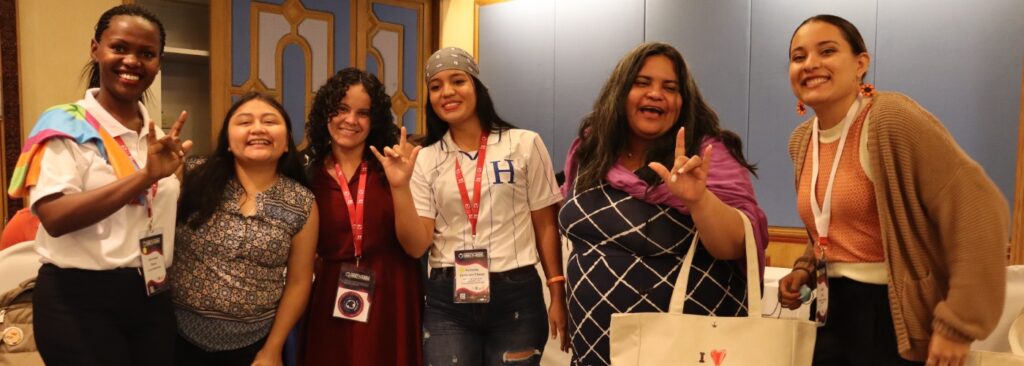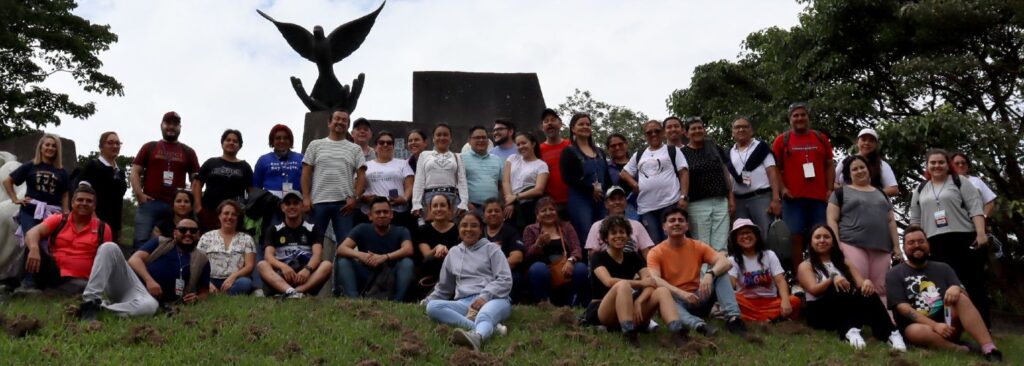Making strides against HIV in Latin America
With the knowledge and treatment available today, the HIV epidemic should be slowing. But new HIV infections are rising dramatically. In 45 countries, more people are becoming infected with HIV each year. Even in Asia and in Latin America, where HIV had been reasonably under control.
A human rights issue
A new report by Aidsfonds says that the global response to HIV is stalling because of increasing inequalities and discrimination. This is why Hivos positions HIV as a human rights issue. Since the 1990s, we have worked with partners in more than 30 countries to pave the way to justice for people living with and affected by HIV.
One of our most recent efforts, the “Positive Leadership Alliance & Key Populations” project (ALEP+PC), has just come to the end of its successful first phase. ALEP (for short) is a Latin American consortium of 10 networks working to improve the living conditions of people living with HIV (PLHIV) and of key populations (KPs). Especially those most discriminated against: trans people, men who have sex with men, sex workers, and people who use drugs.
Funded by the Global Fund to Fight AIDS, Tuberculosis and Malaria, ALEP phase I worked in 11 countries (Bolivia, Colombia, Costa Rica, Ecuador, El Salvador, Guatemala, Honduras, Nicaragua, Panama, Paraguay and Peru) and involved over 75 organizations across Latin American and the Caribbean.
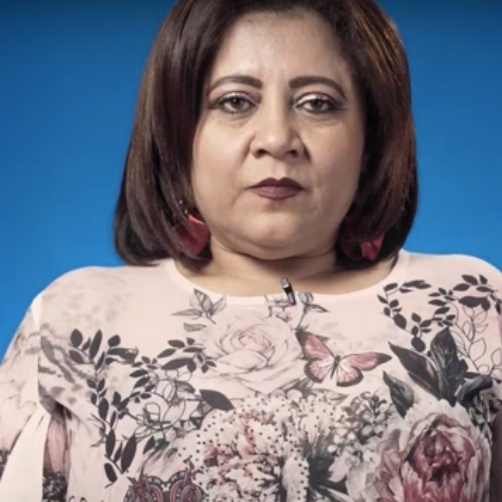
Arely Cano of the International Community of Women Living with HIV (ICW Latina)
“One of ALEP’s most important achievements is that all 10 networks have a single mission and vision: improving the life expectancy and quality of life of vulnerable people with HIV in the region and reducing the stigma, discrimination, inequality, and violence they face.”
An innovative approach
This was the first time that networks of people with HIV coordinated action with networks of key populations to reach a shared goal: the full enjoyment of human rights and access to comprehensive and differentiated care and services in the region.
Involving people with HIV and other key populations in decision-making makes the regional response to HIV more relevant. Their participation is essential in convincing governments to respond effectively, offer quality services and guarantee investment in a long-term comprehensive response to HIV.
Looking back over the run of the project we can highlight some significant achievements.
1. Open data generation about HIV services and budgets
This unique platform, Observadatos.org, gathers the results of citizen monitoring of the HIV response carried out by networks and their organizations in the countries of the project. The data helps the political advocacy of CSOs and is useful for holding governments to account for their HIV spending and policies. It also helps fight against stigma and discrimination by providing information about access to HIV services.
It led to new agreements and collaborations with the Health Ministry in El Salvador and Honduras, and an agreement with the government in Paraguay to be transparent about purchases and budget allocations to HIV.
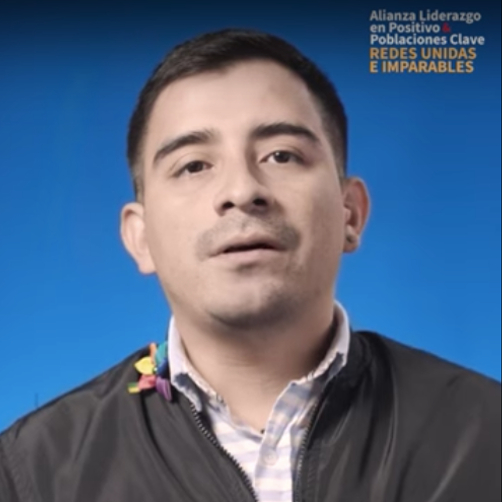
Kalvin Bautista of the Gay Latino network
“In El Salvador, Observadatos.org got the government to open access to a large quantity of data, disaggregated by population groups, which is fundamental for decision making.”
2. Sharing fundraising experiences between countries
By analyzing the support of 79 private donors in the region for HIV, LGBTIQ+ issues, women’s rights and health, the project helped six countries implement flexible domestic fundraising strategies that also cover salaries and overhead.
3. Community-based HIV treatment
Studies published by the project on community models for access to HIV treatment and ARVs (antiretroviral drug treatments), purchasing policies, and access to information led to the creation of new roadmaps in five countries for access to treatment and services. And CSOs in all 11 countries now have strategies in place with authorities for better HIV treatment and information.
4. Leadership academy for KP leaders
To improve the skills and knowledge of key populations, the project collaborated with academic institutions offering university degrees in HIV and Public Health. Over 230 people graduated, and in 2021 30 percent of the students went on to have political impact on HIV-related issues in their countries. Another 53 beneficiaries of ALEP graduated from a regional literacy program in the prevention, diagnosis and treatment of HIV.
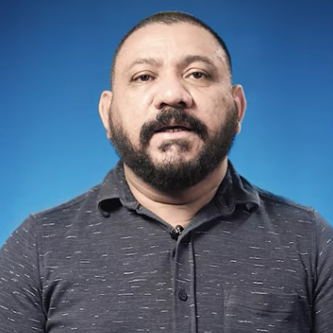
Otoniel Ramírez of Latin American Network of People Living with HIV (RedLa +)
Otoniel emphasizes the importance of the leadership academy: “It enables graduates to develop tools and plans for improving their lives, demand their rights, and help their families get ahead.”
5. Communication strategies
All 10 ALEP networks developed internal and external communication strategies for themselves and for national PLHIV organizations and other key populations. The 10 networks also have monitoring instruments for their communication strategies.
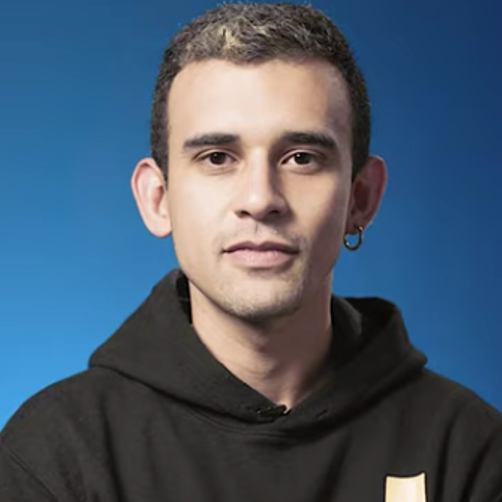
Isaac Acher of the Latin America and Caribbean Network of Young Persons with HIV (J+LAC)
Isaac Acher reflects on the development of internal and external communication strategies. “This let us have a much closer relationship with adolescents and young people through social media and other online campaigns.”
Covid-19
During the Covid-19 pandemic, a new response mechanism was needed to address the effect of the crisis on people living with HIV and Key Populations. So ALEP launched a regional information, communication, social and community mobilization campaign. This included communication materials, a Covid-19 subdomain on Observadatos.org, a regional seminar, and 12 High Level National Forums.
Another new focus during the pandemic was gender-based violence (GBV) and mental health. ALEP strengthened the capacities of CSOs to demand an adequate approach to HIV in the context of Covid-19 through 17 workshops.

ALEP phase II
While considerable progress has been made, the sustainability of this progress is at stake. If we want to end HIV and AIDS by 2030 we need to tackle inequalities and discrimination head-on, while continuing to increase funding resources and strengthen key populations and their organizations.
As Isaac Acher of J+LAC explains in the video above, “The second phase of ALEP starting at the end of 2022 will seek to strengthen the intersectional perspective within internal project discussions. This means dialogue with other agendas, movements and initiatives: feminism, environmentalism, education. This will give the project a broader and more clearly articulated view of our realities and needs.”
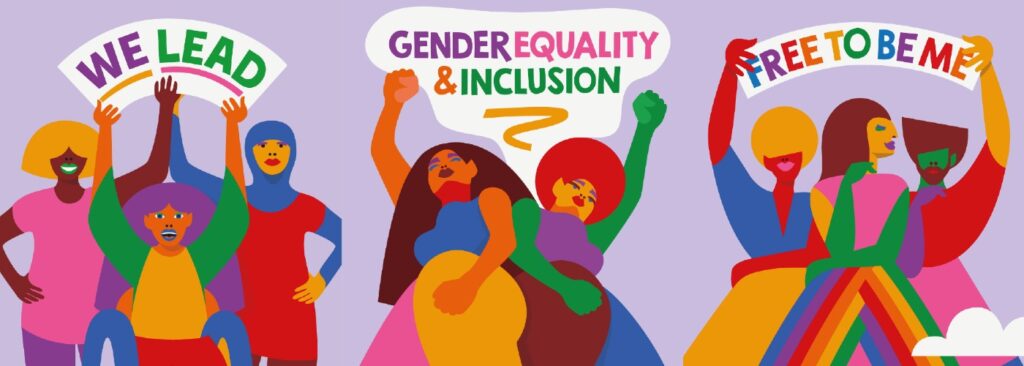
Putting people living with, affected by, and at risk of HIV at the forefront of the AIDS response

